The Secret to Cillian Murphy’s ‘Oppenheimer’: Absorb Everything, Reveal Little
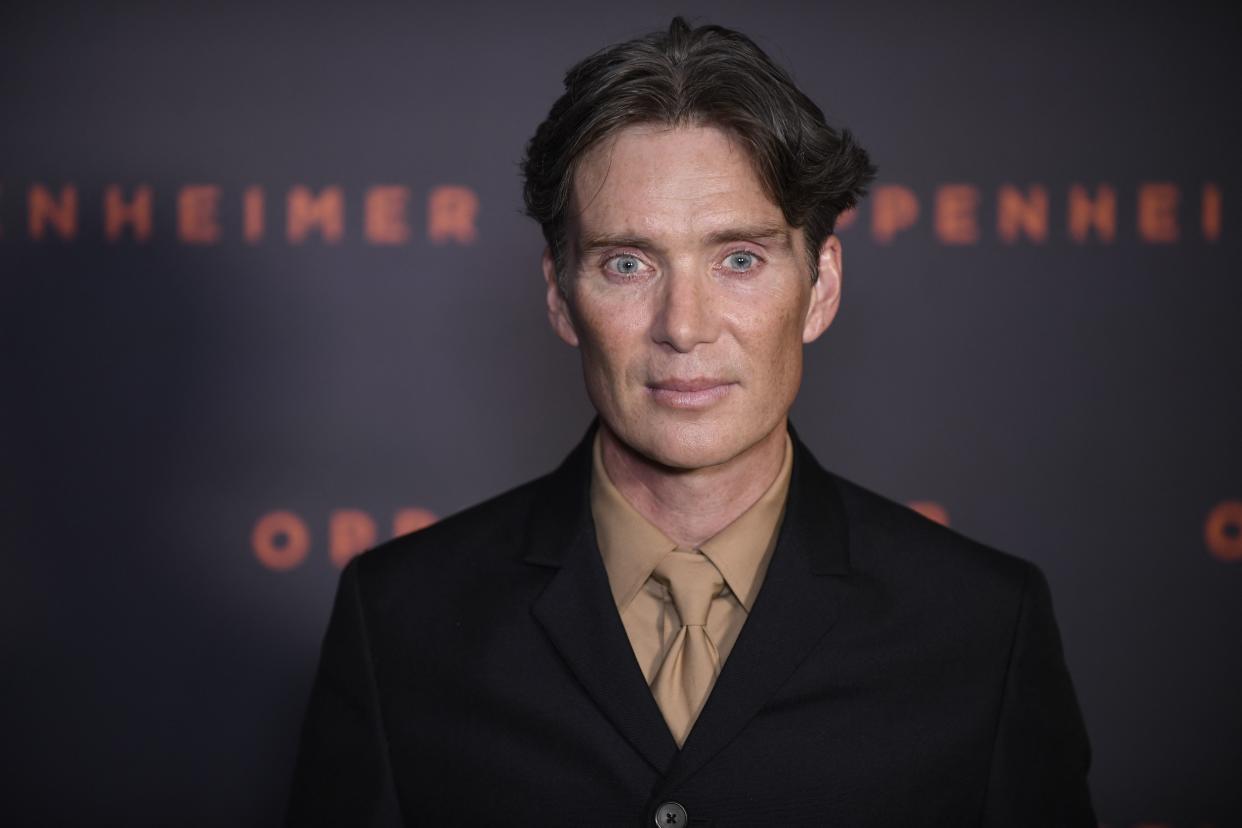
Watch Cillian Murphy do an “Oppenheimer” junket video interview with an old pro like co-star Robert Downey, Jr., and you see the Irish actor pull back, letting Downey ham for the cameras. Murphy prefers to focus on the work, much like filmmaker Christopher Nolan. They’ve collaborated for 20 years, and have pursued each of their six movies the same way: Prepare, immerse, and work tirelessly.
Murphy was winding down his hit BBC series “Peaky Blinders” after six seasons when Nolan approached him six months before the “Oppenheimer” start date on February 28, 2022. That gave the actor time to peruse the script (“It was one of the greatest screenplays I’ve ever read”), lose some weight, work with his dialect coach, and nail the hat and costume (“It’s about the silhouette”).
More from IndieWire
Here’s how Murphy pulled off the daunting and exhausting challenge of playing the title role of J. Robert Oppenheimer, the theoretical physicist who lead the Manhattan Project in Los Alamos, New Mexico that delivered the first atom bomb dropped on August 6, 1945 on Hiroshima to end World War II. A movie that could have been a cerebral history lesson wound up entertaining the masses and grossed over $954 million worldwide.
He shared Nolan’s work ethic. “We both apply ourselves to work in a certain way,” Murphy told IndieWire during a recent interview. “And I’ve learned a lot from him. I apply myself in terms of that focus, and that rigor and that dedication, and that commitment. I’ve always had that instinct in my work anyway; it was just amplified by working with Chris. We’re both not interested in the ancillary nature of the industry. We’re both interested in the work.”
He followed the exacting detail of Nolan’s script. The screenwriter broke down and synthesized an enormous amount of biographical and scientific data and relationships over 40 years. “Chris’ script is the film,” said Murphy. “That’s why in the DVD releases, there are no deleted scenes or anything like that. The script is the film and he shoots the script, and that’s what ends up on screen. Everything you saw in the movie, every single thing was scripted. There is no chopping and changing of scenes, there’s no radical rearranging of the architecture of the script. It’s all there. It was a staggering piece of work. It was truly mind-blowing how he managed to condense this history-making time of the 20th century and put it into a movie and then to compress this man’s life, but at the same time make it feel entertaining and compelling.”
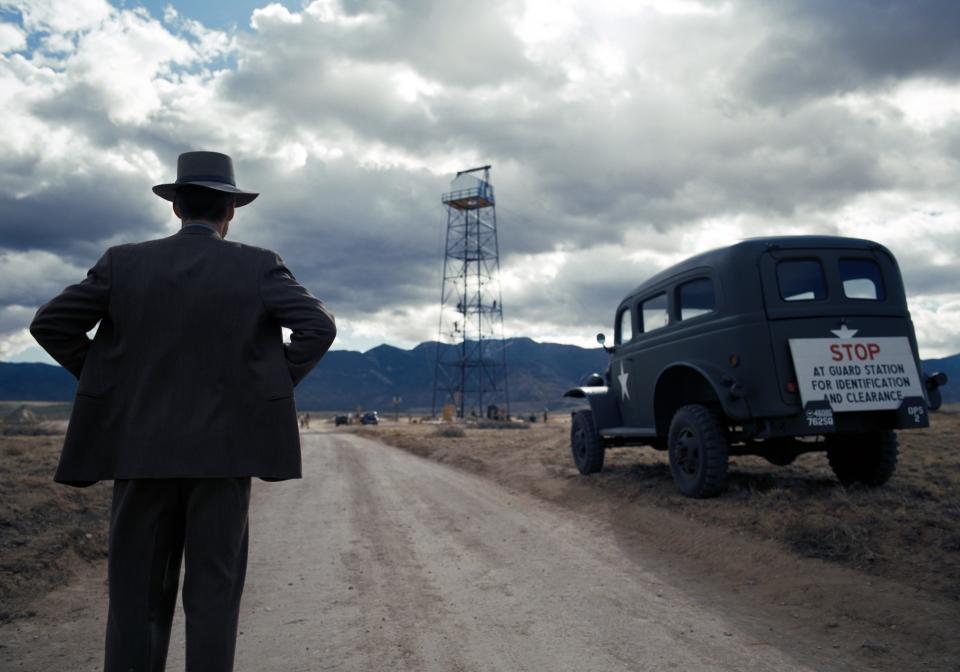
Nolan wrote Murphy’s section of the script in the first person. (That’s not true of the black-and-white section, dominated by Downey as Lewis Strauss.) “Chris has a side of being a true artist,” said Murphy. “But he has an engineering brain, and a mathematical one. He’s always worked like that. And you could see that in the temporal structure of his films and how he plays with narrative and how he’s so interested in science. That’s a rare combination to have the engineering, mathematical mind alongside a genius, creative mind.”
He worked on the inside, absorbing Oppenheimer. “It was a huge undertaking,” said Murphy. “I knew that from the beginning. But I always felt reassured along the way by Chris and our relationship. So I just went at it bite by bite, bit by bit, methodically. I was working on two strands: I was working from the inside out and the outside in. I was reading and absorbing an awful lot. There was the script and there was [the book Nolan adapted] ‘The American Prometheus.’ I dipped in and out of these myriad texts written about Oppenheimer and the creation of the bomb.”
Murphy had to figure out how to draw in audiences with this ego-driven, arrogant, brainy cipher. “What made him so complex and multi-layered and amazing to try and wrestle into a performance,” said Murphy, “was how contradictory he was. He had all of the complexities and contradictions that we do as human beings, except he happened to be one of the most brilliant minds that ever lived. But yes, he was arrogant, and he was vain. And he was naive. And he was conflicted. And he was egotistical, but he was also insecure. He was all of those things. And a womanizer and selfish and also humane and generous by the same token. That’s what makes him so fascinating. That’s what why so much has been written about him and that’s why Chris knew that he would be such a fascinating subject to make a film about. But for me, it’s up to the audience to decide, not for me as an actor. You’ve lost if you ever make a judgment on a character before you play them.”
In the end, less is more. “For me, the whole art of it is that you have to withhold more than you add,” said Murphy. “Do you know, by withholding, you let the audience join the dots emotionally? To me, that’s the sort of acting that I aspire to. Not to demonstrate, but withhold, and then the audience can try and figure out what the inner workings of the man are.”
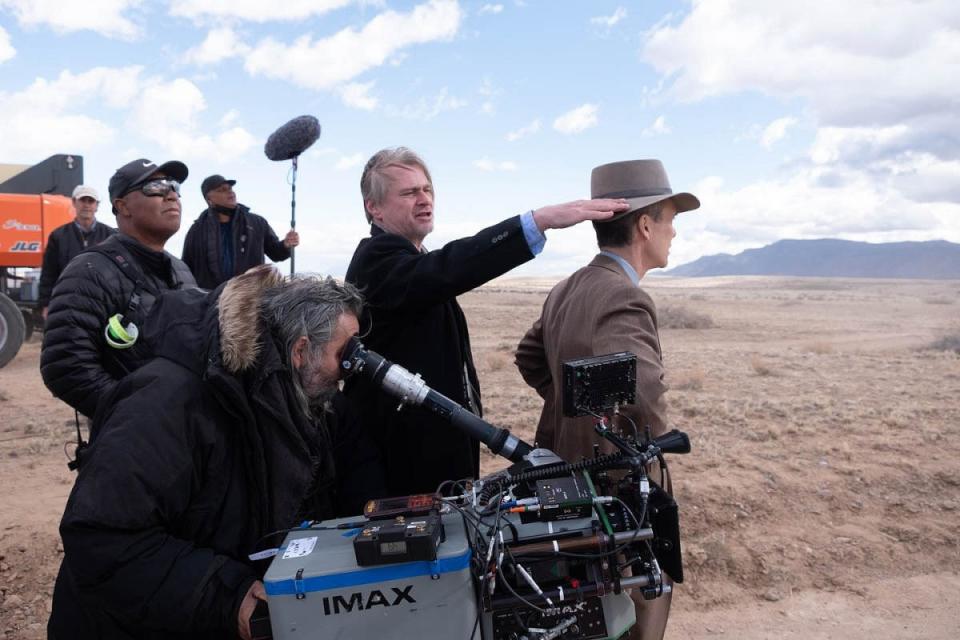
The outside mattered, too. “And then I was working on the other strand,” said Murphy, “which was the physicality and the voice and how he carried himself and all of that. For me, your body is a tool and you’re an actor, and you have to condition it, to suit the part. When I played Tommy Shelby in ‘Peaky Blinders,’ he’s a World War I decorated veteran, a very physical character. So, you have to develop that presence and spend a lot of time at the gym. For Oppenheimer, he was an incredibly frail, slight character and was self-conscious about it all of his life. It became part of that silhouette, that iconic silhouette that we recognize, nowadays. It was important to get that silhouette right because then you walk differently, you carry yourself differently. Clothes hang on different.”
When figuring out the costumes with Ellen Mirojnick, Nolan weighed in. “Chris knows exactly what he wants, so there’s no wasted time trying to figure out what should the character look like,” Murphy said. “He knew from the beginning that only Oppenheimer would wear a hat in the film. In actual reality, all men wear hats at that point in time. If only Oppenheimer wears a hat and only Oppenheimer smokes, this is something subliminal that the audience doesn’t necessarily pick up on but they do. It does focus you in on the character.”
Murphy schlepped back and forth to Los Angeles for camera and makeup tests. “Slowly, the character emerges,” he said, “which is always going to be a synthesis of the script, the research, and me. We were never intending on doing an impression or making documentary. It was always going to be our version of his story. So, yes, it was a long process. In the end, what matters is the performance and I feel that you can get lost sometimes in research. I’ve always avoided making acting an intellectual exercise; it should be an instinctual exercise. Eventually, you have to bring it on to the floor of a film set and that’s where it becomes real. That’s where you’re never finished. Do you know what I mean? You’re always working on it.”
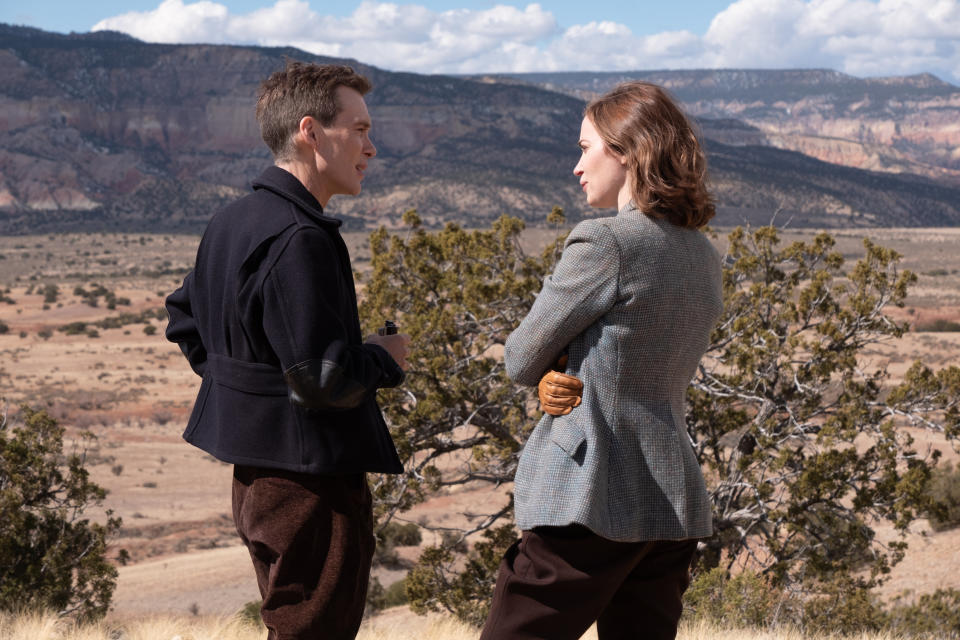
He didn’t work alone. The film has 73 speaking roles with many powerful actors, from Florence Pugh as his Communist mistress and Emily Blunt as his wife, to Matt Damon as his military boss, Downey as his antagonist Strauss, and Gary Oldman as President Harry Truman. “That was a huge support for me to know that these incredible actors are going to be in every one of these roles,” he said. “Every single one of those actors desperately wants to be in a Chris Nolan film. And every single one of them, no matter what size the part, is well prepared. In terms of the big stars that are in the movie, it felt like the people that they were playing were these people of substance, major historical figures in this world. You needed that weight and that gravitas that these actors bring to each role. For me, it was exhilarating every day — because I was on pretty much every day — you’d get to work with these extraordinary actors and it will just lift you up.”
Murphy embraced the comedy with Damon. “He’s been a hero of mine for a long time,” he said. “And I loved the odd-couple dynamic that existed between the two.” Murphy had one day with Oldman. “That was just an absolute blast. I’ve worked with him briefly on one of the ‘Batman’ movies, but this is a thrill to do such a huge, big scene and he came in and just smashed it. I have a special relationship with Emily because we’re very good friends and we have a real trust. I felt able to go places in those scenes with her.”
The movie shows the Oppenheimers’ unconventional approach to married life. “It was highly dysfunctional,” said Murphy. “They were not equipped to be parents, really. Neither of them. You have to remember the times. It was quite normal to be an absentee father or to be a father that didn’t get involved with with his kids. It was different for Kitty, because she was a brilliant woman who was also a scientist who had sacrificed all of that ambition to be his wife. But yet, despite it all, they sustained and there was this weird interdependence between the two of them. They were both there for each other, despite it all.”
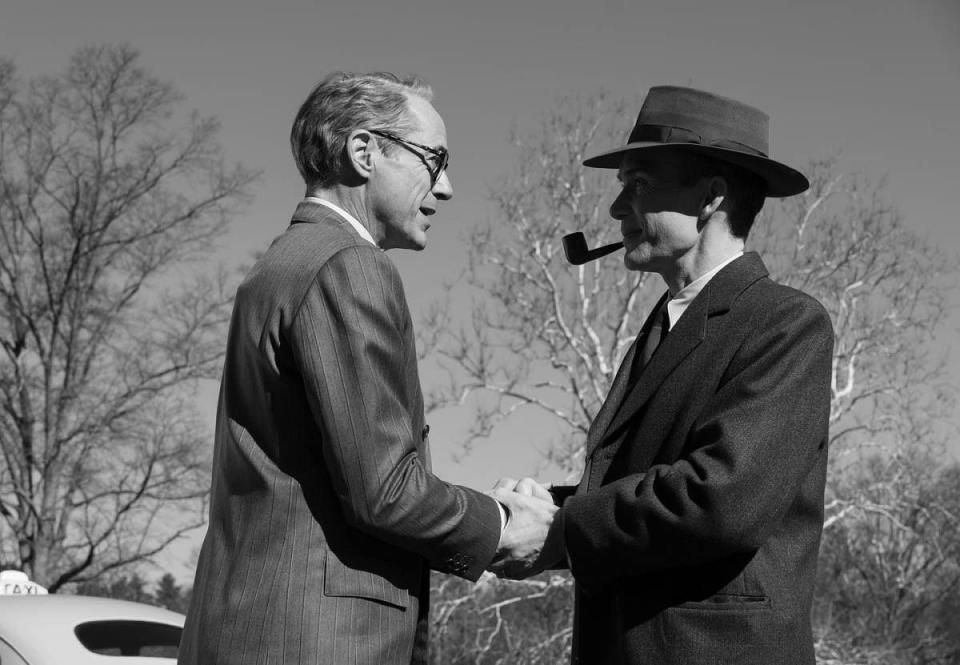
He adapted to the IMAX camera long ago. Nolan liked to bring the enormous, heavy IMAX camera right up to Murphy’s face. “I’ve worked with Chris, as you say, for 20 years now,” said Murphy. “So I’m a bit of a veteran when it comes to the IMAX camera. It’s like any format. You just begin to adapt to it and you realize how to work with it. We actors, we work with these tiny, tiny little GoPro cameras in New York and with these huge IMAX cameras, and your whole job is to forget that it’s there. It’s hard when it’s the size of a fridge, and it sounds like an aeroplane taking off. But you get used to that. And it’s not a big deal. They don’t make a big deal of it, so it quickly becomes normalized.”
The center of the movie is the intense courtroom drama. “That whole sequence was my favorite to shoot because we shot it right at the end,” he said. “We’d been through it all together. It was this insanely ambitious schedule — we shot it in 57 days and we’re flying all over the country. In the end, we ended up in this tiny, awful, shitty little bureaucratic space, with the crew shoved at the end of the room with a huge IMAX camera and everyone squished in. It did get pretty fruity in there a couple of times. That was what they had done in real life to humiliate Oppenheimer, to make him feel worthless and useless. But for me it brought me back to my theater days of just being a company of actors working together closely. I loved those huge tête-à-têtes with Jason [Clarke]. It was emotional, because everyone would come in, and it would be their last scene, and they would leave.”
Next Up: Murphy stars in a Tim Mielant film adapted from the 2021 Claire Keegan novel, “Small Things Like These,” co-starring Ciaran Hinds and Emily Watson, backed by Damon and Ben Affleck’s Artists Equity.
Best of IndieWire
Sign up for Indiewire's Newsletter. For the latest news, follow us on Facebook, Twitter, and Instagram.